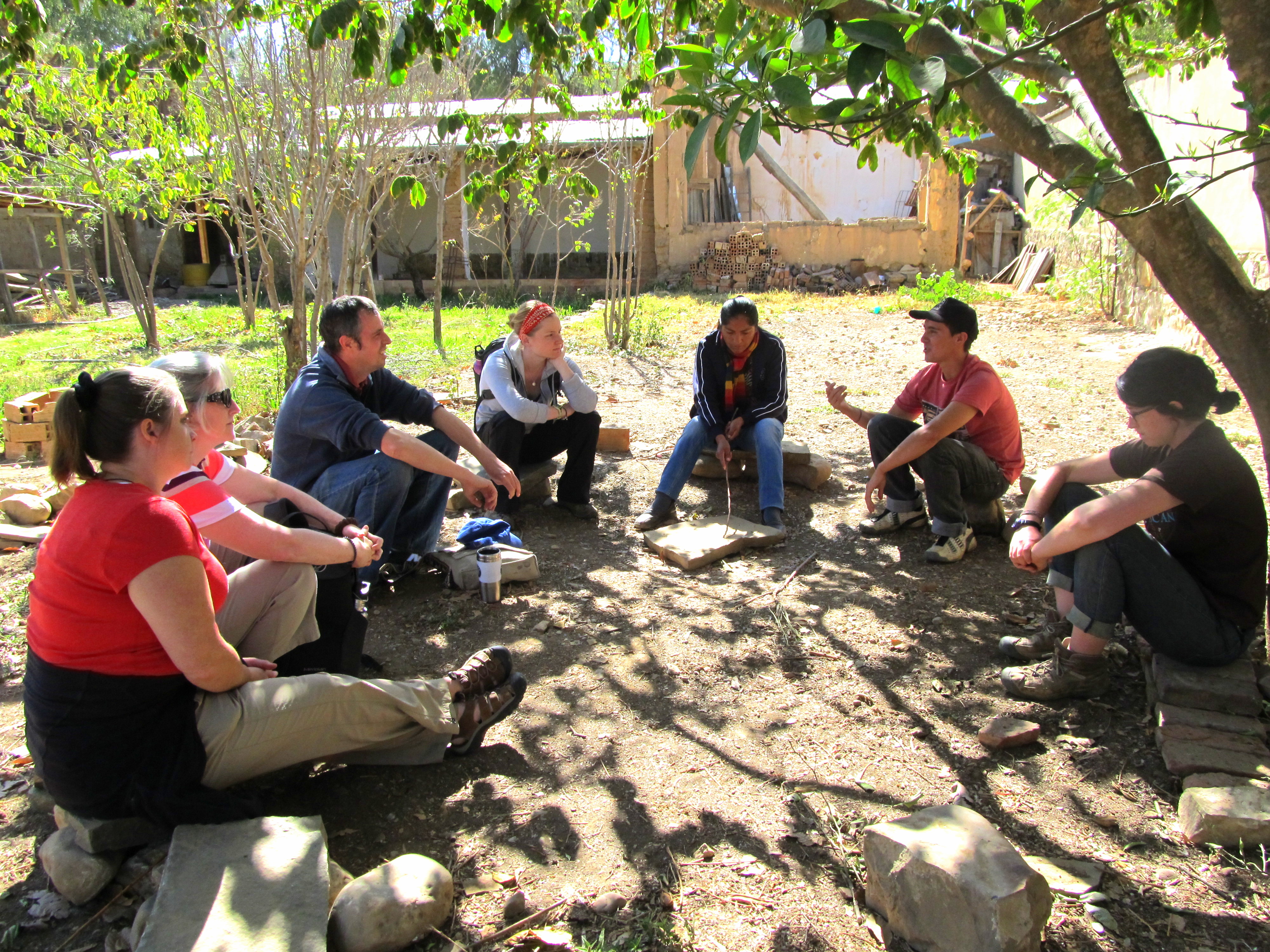2nd Sunday in Ordinary Time
Dan Moriarty
January 17, 2021
1 Samuel 3: 3b-10, 19; Psalm 40: 2, 4, 7-8, 8-9, 10; 1 Corinthians 5: 13c-15a, 17-20; John 1: 35-42
Dan Moriarty works for the Maryknoll Office for Global Concerns and is a returned Maryknoll Lay Missioner who lived in Bolivia for 17 years.
Today’s readings tell familiar stories of God calling a prophet to speak God’s Word and Christ calling disciples to follow him and become his church.
But there is a central aspect of each of these stories that is perhaps most important for us today, centuries and miles from the historical Jesus, in this time when God’s voice is not so literally audible. In both stories, another figure, a spiritual mentor, helps the disciple- or prophet-to-be by calling attention to God’s voice and presence in their midst. Samuel hears God’s call, but does not understand until Eli explains who is calling, and helps him respond. Andrew and his companion (John, son of Zebedee, traditionally) were disciples of John the Baptist, and it is he who tells them that Jesus is the Lamb of God, and encourages them to follow him. After meeting Jesus, Andrew then tells his brother, Simon Peter. Peter, Simon, John, and the other apostles would go on to call thousands.
This recognition of God among us, encouraging new prophets to respond to God’s call, new disciples to take up Christ’s mission, has continued into our own time. We can ask ourselves, how is God calling me today? Who are the figures in my life who, like Eli and John the Baptist, help me to recognize and respond to God’s call?
Christ is clear: we are to meet him in his people. “Whatever you did for one of these, the least of my sisters and brothers, you did for me.” Every Maryknoll missioner can point to the wisdom figures in their own mission journeys, who invited them to answer God’s call, to discover Christ for themselves in the “least of these.” Each can tell of the personal conversion experience that followed.
When I first arrived in Bolivia as a Maryknoll Lay Missioner, other Maryknoll Lay Missioners, Sisters, and Fathers & Brothers told me how they had encountered Christ in the Bolivian people, and invited me to do the same. Bolivians, in turn, invited me into new roles and relationships, struggling alongside impoverished families, internal migrants, Indigenous communities, and prison inmates for dignity and human rights. By answering their invitations, I came to know and serve God in ways I could never have imagined.
Like Andrew in the Gospel, once I had met Christ in the Bolivian people, I was moved to share this grace with others. For many years, I worked with the Maryknoll missioners in Bolivia to invite North Americans to immerse themselves in Bolivian culture and community as short-term volunteers, and discover how God calls each of them to mission. Bolivians taught them to see God in their lives and in their struggles, and, like Eli, helped them understand how to respond.
Now I work at the Maryknoll Office for Global Concerns in Washington, DC. A big part of our job is to look for the Elis or the John the Baptists who can help us to recognize how God is calling us to follow Christ in the world today through enacting just global policy. How are global events impacting the people at the margins? Which political programs do or do not address the needs of the most vulnerable?
Often, Maryknoll missioners in the field point the way. Sister Pat Ryan tells us how Indigenous farmers in Perú are urging political leaders to draw on indigenous wisdom and customs to shape responses to the COVID-19 pandemic that also ensure food security. Lay Missioner Heidi Cerneka tells us how U.S. immigration policy impacts families on our southern border fleeing violence in Central America. Fr. Frank Breen explains how the U.S. request to initiate armed drone attacks in Kenya risk exacerbating divisions, killing civilians and alienating ethnic Somalis in the north of the country. Always, their analysis goes beyond mere politics: where is Christ here? How is God calling us to respond?
Another voice that, like Eli and John, helps us discern the answer to these questions is Pope Francis’. By holding up the poor, the migrant, the victims of war and violence, by listening to the indigenous people of the Amazon, the Congo, and elsewhere, by teaching us what it means to live as sisters and brothers all – “Fratelli Tutti” – and to praise God – “Laudato Si’” – by caring for our common home, Francis helps us to find our own prophetic voice, and to follow Christ in advocating for peace, justice, and care for Creation
Who are the figures you turn to in discerning God’s call? “If you are called, reply, ‘Speak, LORD, for your servant is listening.’” Who is helping you to recognize Christ in our midst? “Behold, the Lamb of God!”
Photo: Dan Moriarty (3rd from left) gathering for reflection with participants in an immersion trip in Cochabamba, Bolivia.

